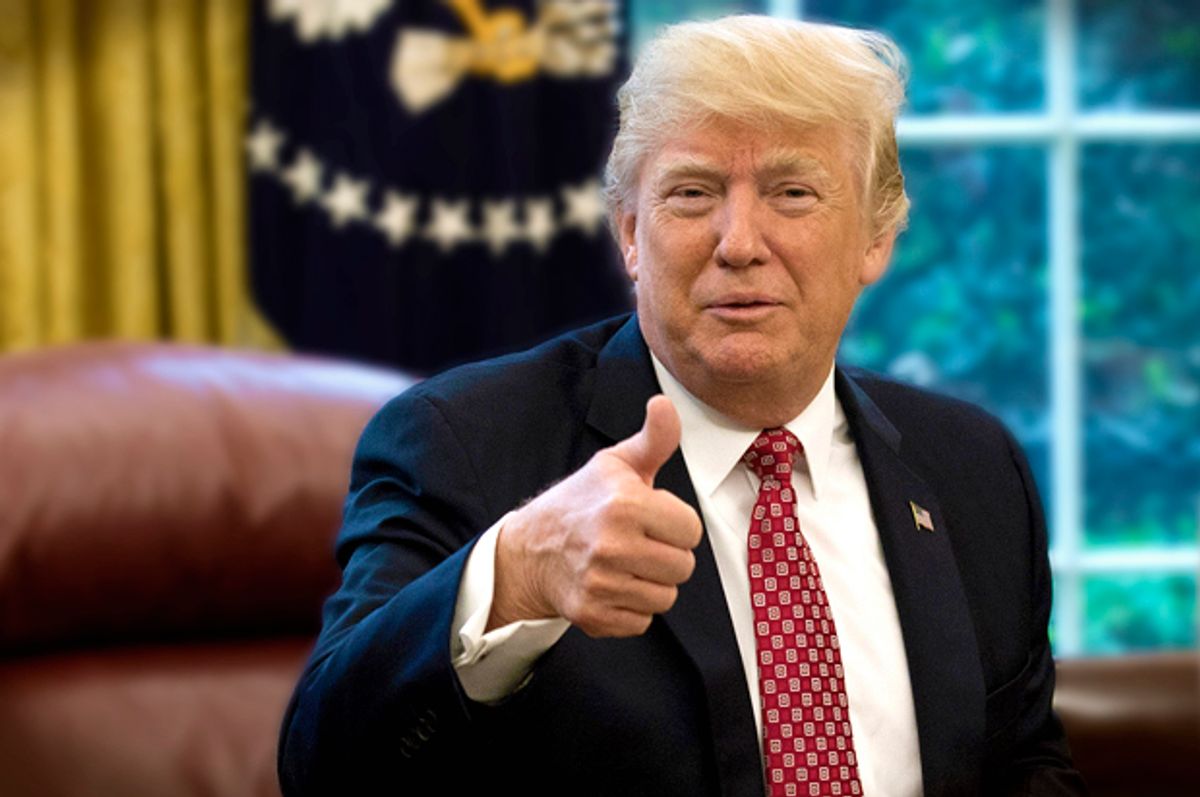President Donald Trump's TV watching habits have already become legendary. Now a new report indicates that the president also has a habit of being influenced by whatever recent news is placed before him — a characteristic that has serious implications for how he runs the country.
Deputy national security adviser K. T. McFarland found herself in hot water when she got Trump convinced that the media had hypocritically flip-flopped from warning about an impending ice age to promoting the notion of global warming — even though her argument was based on a forged Time Magazine cover, according to a report by Politico. Although White House staff were able to intervene before Trump publicly discussed the hoax as if it was real, the fact that it was so easy to misguide him underscored a deeper problem with the president's mind.
In February the president was reported to have started asking his staffers about deputy chief of staff Katie Walsh after reading an article from GotNews.com that accused her of being "the source behind a bunch of leaks" (Walsh now works as an adviser to a pro-Trump group). On another occasion, he was able to squelch Secretary of State Rex Tillerson's attempt to appoint a deputy of his own choosing (Elliott Abrams) because someone showed the president material in which Abrams had been critical of Trump.
The Politico story emphasized that "there is universal agreement" that "the best way to focus the president’s attention on any story is to tell him about it personally, even if it is in one of the papers he’s already thumbed through." Despite the risk that doing so may cause the president to metaphorically shoot the messenger bringing unwelcome news, it can also allow the person presenting that story to have a profound impact on the country. One of the most notable examples was when an unknown source showed Trump a New York Times op-ed written by economists Steve Forbes, Larry Kudlow, Arthur Laffer and Stephen Moore. Trump subsequently proposed a tax plan similar to what they had advocated.



Shares